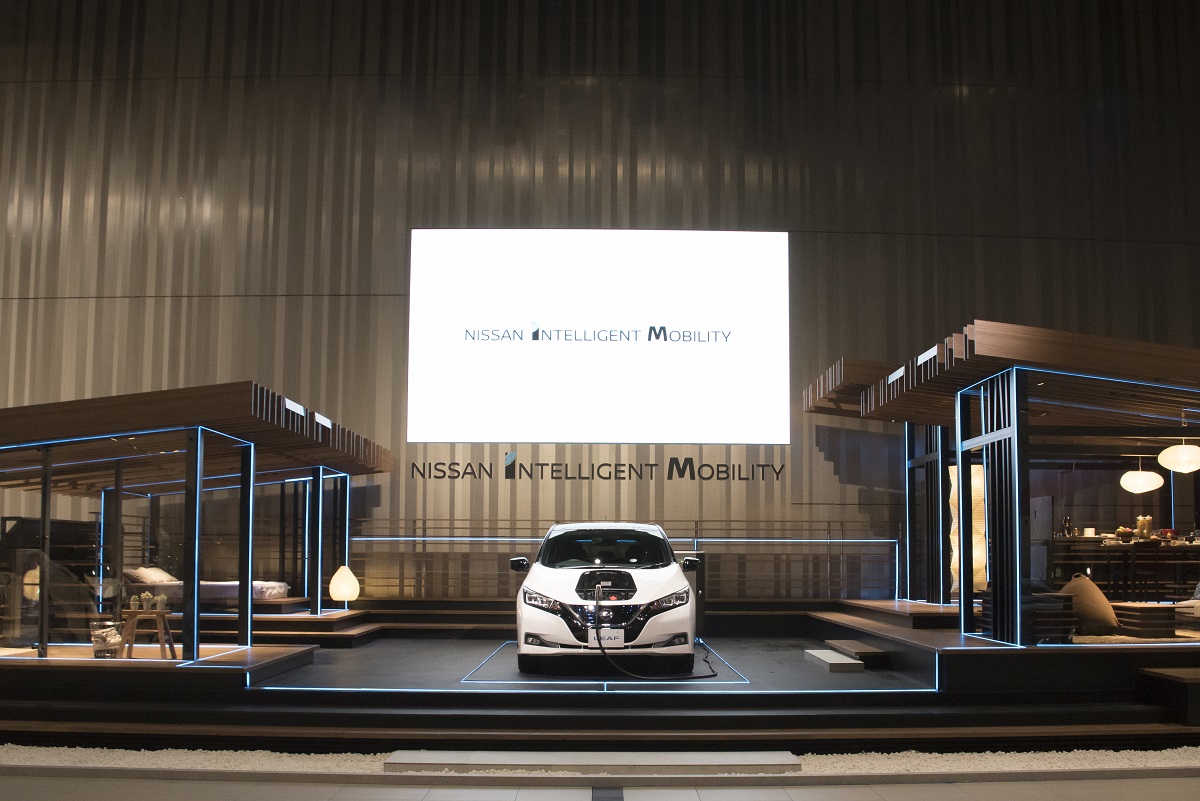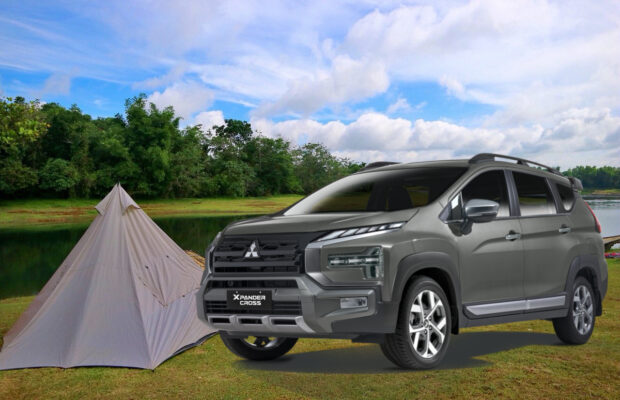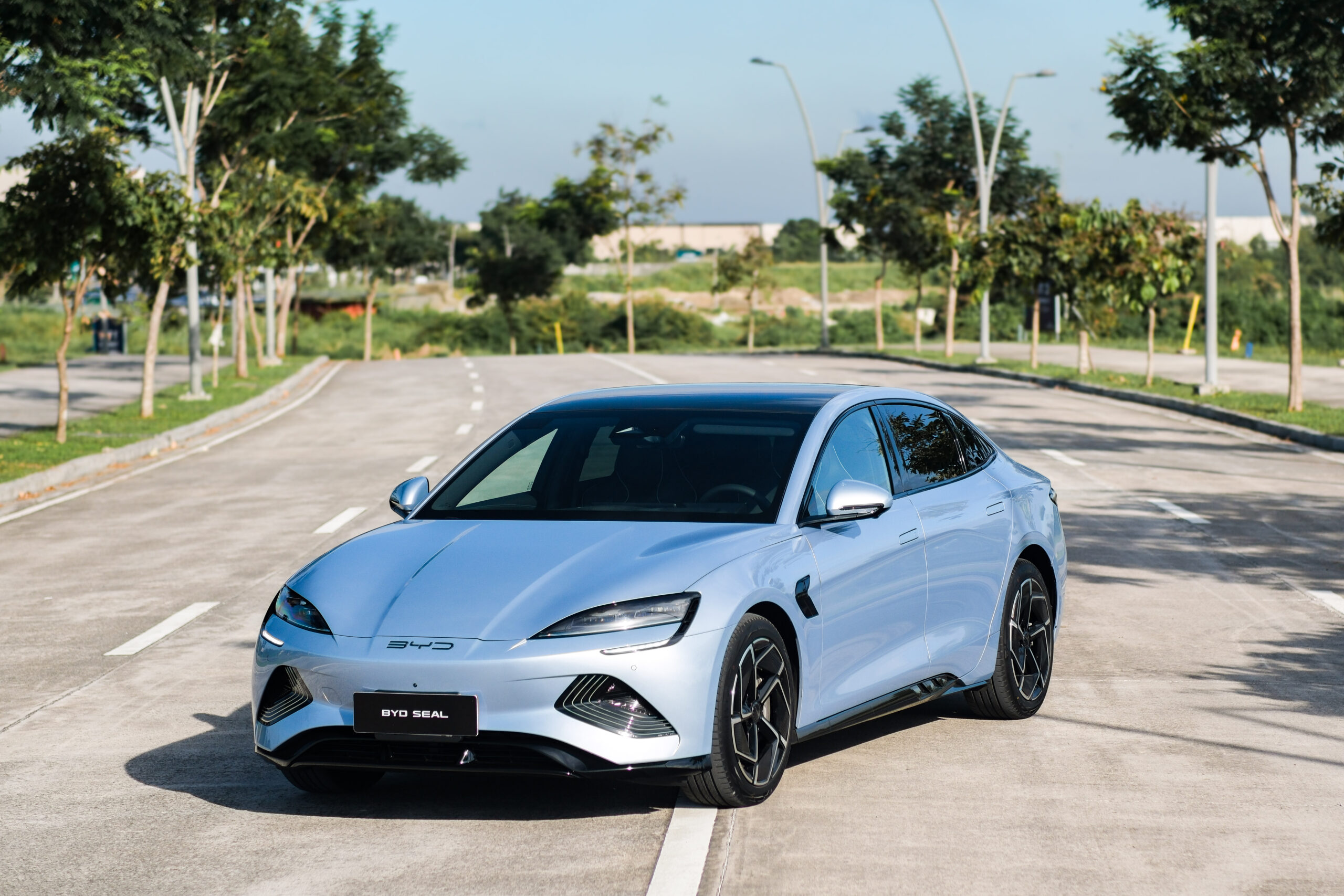Nissan unveils Nissan Energy Home

- Advanced demonstration house shows how connected cars can become personal power grids
Nissan today unveiled the Nissan Energy Home, a demonstration house that shows how electric vehicles can help provide power for a home’s energy needs.
Located in the Nissan Global Headquarters Gallery in Yokohama, the demonstration house features solar panels and a Nissan LEAF electric car that provides power from its battery pack. The Nissan Energy Home allows guests to learn about Nissan Energy, the company’s vision for connecting homes, cars and power grids, which was announced today.
Nissan Energy envisions a connected world where new developments in battery usage and power generation enable homes and vehicles to better harness energy and to power each other. This is a key aspect of Nissan Intelligent Integration – a pillar of Nissan Intelligent Mobility, the company’s vision for changing how cars are powered, driven and integrated into society.
Nissan Energy Share – combining power generation
At the heart of the Nissan Energy Home is a vehicle-to-home system. The system charges the connected electric vehicle, which then shares power with the home. This demonstrates Nissan Energy Share by using Nissan’s electric vehicle technology to store, share and repurpose energy.
During the day, when the sun is out, the solar panels generate electric power and forward it to the Nissan LEAF battery pack for charging. The LEAF assumes the role of an energy storage unit while the solar energy is harnessed.
When the sun goes down, the home’s electrical demands are managed by the Nissan LEAF to power lighting, air conditioning, televisions and even cooking appliances. The needs of a typical house can be provided using a small percentage of the battery capacity, leaving plenty of range for driving. The next day, the cycle is repeated.
Connecting with Nissan Energy Supply
Nissan Energy Supply provides connected charging solutions that customers may need at home, on the road and at their destination. Electric vehicle owners typically do the majority of vehicle charging at home, and the Nissan Energy Supply service verifies whether charging equipment, such as electrical sockets, wall boxes or power control systems, can be connected to Nissan electric vehicles safely.
A clean, powerful design
The Nissan Energy Home was designed by the company’s global “space design team,” headed by Alfonso Albaisa, senior vice president of global design. Wrapped in wood and clear walls, it expresses both Japanese tradition and modernity, with a sense of nature and sophistication.
Along the flooring and walls, blue illuminated power strips show the flow of energy from the solar panels or the Nissan LEAF battery. The open-air layout, with walking paths to each room, allow guests to move as freely as the energy moving around them.
The future of efficiency, today
The Nissan Energy Home isn’t a distant dream or future; it represents the possibilities of today, using existing technologies. Nissan Energy’s capabilities, whether it’s Nissan Energy Share or Energy Supply, can also be used as part of emergency relief efforts where the established power grid isn’t available.
“The Nissan Energy Home demonstrates the power of Nissan Intelligent Mobility and Nissan Energy, and how they can be integrated into your life – today and tomorrow,” said Executive Vice President Daniele Schillaci, Nissan’s global head of marketing, sales and electric vehicles. “This is merely the first of many demonstrations that our customers and fans will see regarding Nissan Energy, and we welcome them at our gallery in Yokohama.”
About Nissan Motor Co., Ltd.
Nissan is a global full-line vehicle manufacturer that sells more than 60 models under the Nissan, INFINITI and Datsun brands. In fiscal year 2017, the company sold 5.77 million vehicles globally, generating revenue of 11.9 trillion yen. On April 1, 2017, the company embarked on Nissan M.O.V.E. to 2022, a six-year plan targeting a 30% increase in annualized revenues to 16.5 trillion yen by the end of fiscal 2022, along with cumulative free cash flow of 2.5 trillion yen. As part of Nissan M.O.V.E. to 2022, the company plans to extend its leadership in electric vehicles, symbolized by the world’s best-selling all-electric vehicle in history, the Nissan LEAF. Nissan’s global headquarters in Yokohama, Japan, manages operations in six regions: Asia & Oceania; Africa, the Middle East & India; China; Europe; Latin America; and North America. Nissan has partnered with French manufacturer Renault since 1999 and acquired a 34% stake in Mitsubishi Motors in 2016. Renault-Nissan-Mitsubishi is today the world’s largest automotive partnership, with combined sales of more than 10.6 million vehicles in calendar year 2017.
For more information about our products, services and commitment to sustainable mobility, visit nissan-global.com. You can also follow us on Facebook, Instagram, Twitter and LinkedIn and see all our latest videos on YouTube.


























0 comments